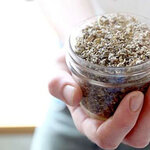
By Benjamin Plackett, Inside Science
There is an ongoing competition of bureaucratic one-upmanship between the U.S. government and renegade pharmacists. The government is playing defense. When they ban a variation of a drug, pharmacists then quickly create a newly formulated and therefore legal variation.
The drug makers are shrewd chemists. They know if they alter the chemical structure of an illegal drug in a simple way, it technically becomes a new substance and consequently outside any federal regulation until the authorities catch up. It's a high-stakes game of whack-a-mole. These drug…


